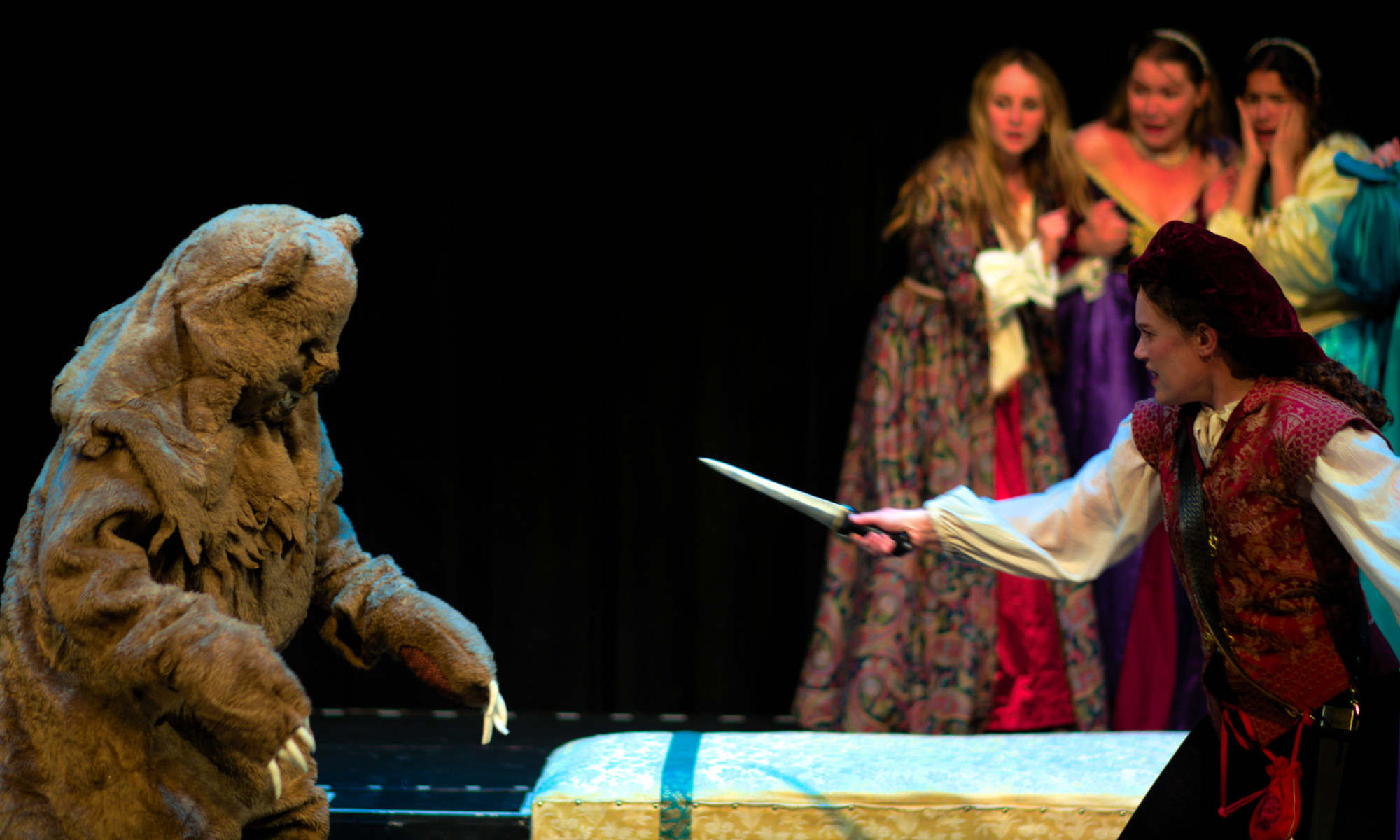In our tenth season we committed an act of incredible courage, or incredible folly. We did a production of Macbeth. The thing about Macbeth (Dare I type the word?) is that it enjoys—well, suffers—an odd distinction: The play has a curse on it—actually three curses.

First, one must never speak the word “Macbeth” in a theatre; not on stage, not in the dressing room, not in the shop. That is certain to bring disaster upon whatever play is in production at the time. The curse can be lifted if the speaker of the dread word leaves the theatre, spins around three times uttering obscenities while spinning, spits over his shoulder, and then begs re-admission and quotes from Hamlet: “Angels and ministers of Grace, defend us.” When the play must be mentioned backstage or onstage, it should be referred to by a euphemism. The usual one is “The Scottish Tragedy.” (I prefer “Brigadoon.”) I have heard of productions of the play that never spoke the name in rehearsals (But “Macbeth” occurs more than forty times in the dialogue of the play. I suppose they said something like “MacDuck”in rehearsal, but I don’t know.) The fact is I have been castigated more than once for saying “Macbeth” backstage. No, I never went outside and spun and cursed and spit. I always said “You don’t really believe in that curse, do you?” And I was usually answered with something like, “Why take the chance?”

Second, not only is Macbeth a tragedy, but producing it invites tragedy. The anecdotal record of productions of the play from its first performance in 1607 to the present reveals numerous cases of serious—even fatal—illnesses and accidents befalling the casts and crews who recklessly ventured to do the play. The first Lady Macbeth died just before the first performance. Lincoln read the play the night before he was assassinated. A falling sandbag nearly hit Sir Lawrence Olivier during a rehearsal. There was a riot outside a theatre doing the play in the 19th century, and more than a hundred people were killed. Several actors have been wounded during the combat in the play. And on and on. An internet search shows nearly a hundred documented—well, alleged—cases of disaster striking performances of Macbeth. Some of these cases actually occurred! Do you dare do the show? Do you dare attend?

Well, let’s see. Macbeth has been around for over 400 years. Assume something like 50 performances a year around the world. Fewer, I’m sure, in the 17th century: far, far more in the 20th. (I, myself, have acted in about 20 performances of three different productions of the play.) That would make perhaps a hundred or so dreadful events out of 20,000 performances. I think we’re safe. Brigadoon, however…

But there is a third curse, and it may be real. In the 19th century (before the superstitions had taken hold) the play was often produced by companies about to go under. It is the shortest of Shakespeare’s tragedies, it has a great plot with great roles and there’s lots of witches and sword-fighting and spectacle. It was thought to be a real crowd pleaser (it is) and was often the last production of failing companies trying to stay alive by doing a sure-fire hit. Since they were failing companies, these were not likely to be particularly good productions. Macbeth began to regarded as a play that could not be done well, and as a play that destroyed theatre companies. It has been speculated that this is the origin of the superstition. I am not convinced.

Anyway, directors and actors began to be afraid of the show. Enough of them are superstitious enough to believe the goofy curses and they approach the play with such trepidation that they cause the curses to fulfill themselves. Nobody dies, but there is enough alarm and nervousness to destroy the necessary energy that makes for a good production. But they know its a wonderful play. And they know they are about to fail. So they try to fix the problem by attacking the play with all the weapons at their disposal. Sex is one: naked witches and naked thanes. Maybe the witches are the problem: get rid of them. Maybe the witches are the solution: get more. (One of the productions I was in [not at The Upstart Crow] had six witches. I will not tell you about the costumes.) If Macbeth were dressed as a modern CEO, or a gangster…

Macbeth is probably more often conceptualized, decon-structed, post-modernized, and just plain made over than any other Shakespearean play. And yet, in spite of (or because of) the very best efforts to fix it, it fails. The curse must be real.

Here was our solution: We just did the play. All of it. No cuts, no improvements, no concepts. Just the play Shakespeare wrote, set in the time of the real King Macbeth. It’s the way we always do Shakespeare’s plays and it worked. We did Macbeth again in 2005 and it worked again and we’re still around.

